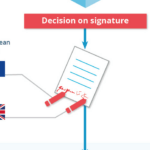On January 15, 2025, the closing event of the multinational project “Building Capacities for Effective Communication of the Benefits of Recovery and Resilience Plans” took place. The project was funded by the European Commission under the technical assistance instrument.
During the project, eight member states — Belgium, Bulgaria, Cyprus, Latvia, the Netherlands, Portugal, Romania, and Spain — received technical support to enhance their communication capabilities with stakeholders, the media, and the general public about the reforms and investments implemented and included in their recovery and resilience plans.
The project has created an effective and dynamic network of member states that work together and learn from each other on how to address common challenges and ensure the maximum impact when applying communication strategies for their recovery and resilience plans. This has, therefore, contributed to the success of the implementation of these plans.
Context
In response to the unprecedented COVID-19 crisis, the European Union presented one of its most ambitious plans for rapid economic and social recovery: NextGenerationEU. The Recovery and Resilience Facility (RRF), the central element of NextGenerationEU, has helped our economies and societies emerge stronger and more resilient from the effects of the COVID-19 pandemic. To benefit from the aid under the RRF, EU governments have submitted recovery and resilience plans outlining the reforms and investments they will implement until the end of 2026.
The technical assistance instrument is the European Commission’s primary tool for helping member states design and implement inclusive, growth-generating reforms. This instrument supports EU member states in their reform programs related to healthcare, public finance management, the digitalization of education and public services, and strengthening the business environment and financial sector.
More information European Commission.







Leave a Reply